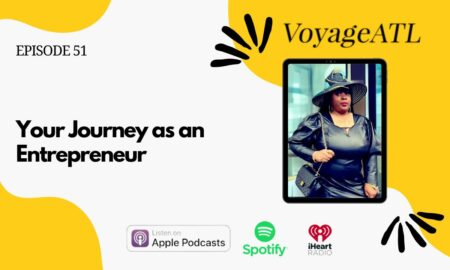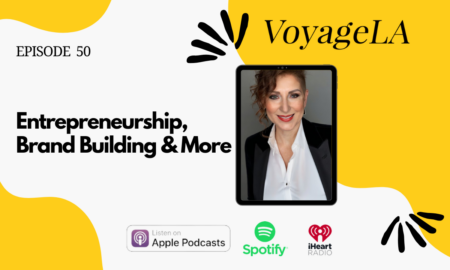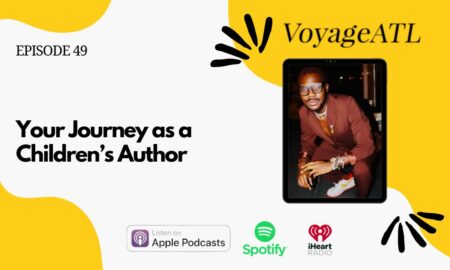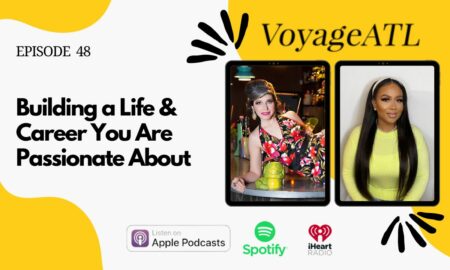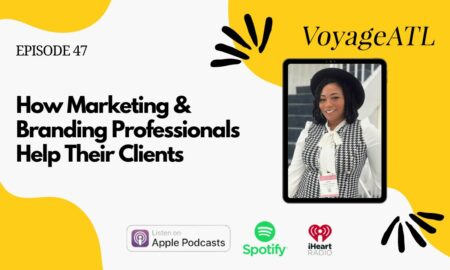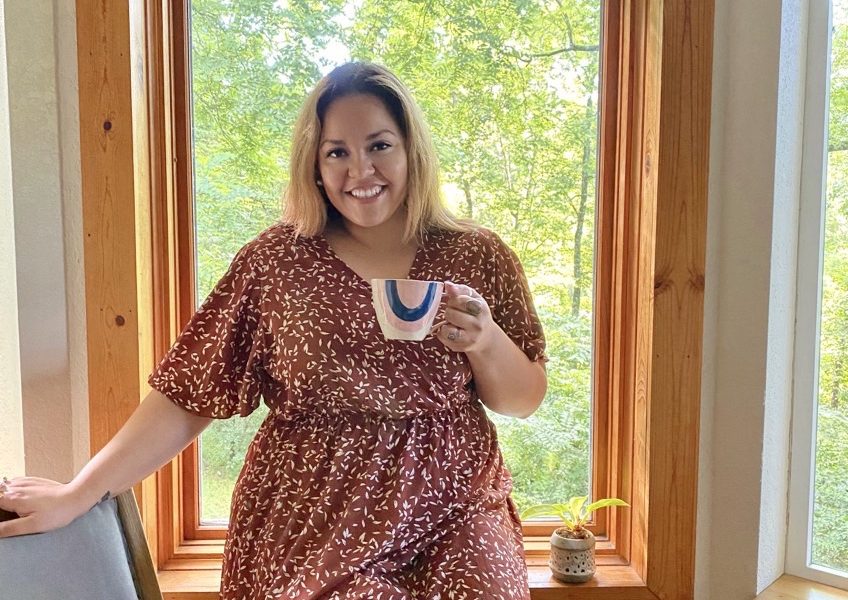

Today we’d like to introduce you to Nury Castro.
Thanks for sharing your story with us Nury. So, let’s start at the beginning and we can move on from there.
I am a daughter of immigrants. I cannot tell my story without starting with my parents and my ancestors. My Papi is from El Salvador and my Mami is from Honduras. They both migrated to the United States in the early 1980s in hopes of leaving behind the civil unrest, poverty, colonization, war, and violence that was present in their Central American countries. My parents met in Los Angeles, California and eventually I came along in what I like to call their ‘Califas love story.’
In the early 1980s, living in Los Angeles and Inglewood, my parents began to see state violence, poverty, and an overall parallel between their surroundings there to their surroundings in Central America. Now their idea of the ‘American Dream’ included a baby so they began to give thought to moving away from California to begin raising their family.
My parents began their journey to Durham, North Carolina and my maternal family joined them in this venture. While I was born in Cali, I proudly call the Bull City home.
Like many first-generation folks, I began to carry the responsibility and expectations that came with generations of survival, strength, migration, and perseverance. My parents never missed an opportunity to share that their sacrifices were fueled by their desire to provide me with a better life of access, resources, opportunity, and most importantly, education.
My parents were heavily involved in my school happenings since elementary school, I do not remember a day in my life or schooling that I did not keep their efforts and sacrifices at the forefront of my decisions and actions. I know that my fellow first-generation folks will be able to relate to this feeling all too well.
While in k-12 classes I was enrolled in all the ‘gifted’ classes and eventually in high school I was enrolled in an International Baccalaureate program. I cannot remember a time in the classroom that I was not the only Brown, Latina student. Little did I know that my days of being the only Latina in a classroom were far from over.
When it came time to prepare for college, like many aspiring scholars who are also first-generation, we had to figure out how to navigate this new world on our own. After what felt like the a marathon of hurdles that we had to navigate, I was finally a student at North Carolina State University.
My experience as a first-generation Latina at a predominantly white institution (PWI) is what truly led me to learn a new language for everything I’d experienced that I did not have the language for before. I began to learn about systems of oppression, racism, power, privilege, classism, homophobia, and the many structures that are built in our overall society that inherently leave folks like me out. This is the exact time I began to make more sense of my experiences and I began viewing everything from a critical lens – I was unlearning and relearning so many things. Fast forward four years later, after A LOT of mentorship from incredible Black women, Black scholars, and Black practitioners, I began exploring the idea of graduate school and decided to pursue a Master of Public Administration.
Different degree and program, same scenario… the only Latina in the classrooms. My Master’s work focused on the relationships between policy and social inequities. By this point, it was clear that my path and purpose were in education. I’d found my power and stepped into my voice as I continued to develop my desire to challenge and critically analyze the systems that we all exist in – particularly when it comes to policy and education.
Currently I serve as the Assistant Director of Community Engagement and Service at Georgia Gwinnett College and I am a doctoral student at the University of Dayton where I am pursuing a Doctorate in Leadership for Organizations. I hope to continue my research and work focusing on anti-racist education.
My parents and my story are intertwined – their strength and perseverance have created the person, scholar, and interruptor that I always needed when I was younger. I don’t take my responsibility as a first-generation scholar and educator lightly, and I hope that my story resonates and inspires Black and Brown girls to believe that they too have every right to take up space in our world.
Overall, has it been relatively smooth? If not, what were some of the struggles along the way?
I wish! Navigating school applications, courses, relationship building, and the overall culture of the academy has always been new territory.
I am no stranger to having to ‘figure it out’ along the way. My undergrad journey had some struggles because I did not have someone I could connect with for advice or guidance. Having to navigate spaces in which the majority of the people around you do not face similar (if any) structural barriers can be isolating and exhausting.
My graduate school journey had very similar struggles. The difference in graduate school was that I had learned the power in community and knowing that I have a community for support outside of my classrooms and coursework….this made the social aspect of school a lot better. The biggest struggle through my graduate experience was the lack of faculty I could connect with. During my two year MPA journey I took classes with the only two Black professors in the program. Outside of their classrooms, there were never any opportunities to engage in critical conversations around what we were learning and the realities that folks of marginalized groups experience. It always blew my mind that we were learning about Public Administration without actually discussing relevant socio-cultural and socio-political issues.
It would be remiss of me not to mention that after undergrad, I was able to truly learn how to navigate these spaces thanks to the mentorship I have received. Mentorship got me through two graduations, the launch of my professional career, and now the belief in myself to pursue a doctoral degree while I continue working as a full-time practitioner.
Alright – so let’s talk business. Tell us about Nury Castro – what should we know?
This question always makes me chuckle… summing up what I do always feels like a puzzle. Professionally, I am a Student Affairs practitioner and educator. As the Assistant Director of Community Engagement and Service I oversee all of the community engagement and service opportunities for the college. Through this responsibility, I am intentional about the service-learning initiatives that my office offers and curates… I try my best to unpack the ‘savior complex’ with students before, during, and after community initiatives. I think this work is valuable and necessary, however, I think there is a very fine line between doing service WITH the community and believing that you are there to ‘save’ the community.
My proudest moment in this specific role has been curating a week-long Alternative Service Break (ASB) experience where I took 25 college students to Washington, DC to explore the intersections of poverty, gentrification, and racial justice. During this trip the students were trained on how to lobby to their representatives, they met directly with their representatives and lobbied for tax credits and other issues affecting Georgians, and they worked with local grassroots organizations to really understand how poverty, gentrification, and racial justice are impacting the Metro DC Area. Through this experience, students were able to make a connection between what they were learning and how it applied to their home communities, whether in Georgia or not. This trip was meaningful for me for a few reasons: a lot of the student participants had never left their hometown, about half of the group had never been on a plane, and none of the students had ever lobbied before. When we were at the Capitol building in DC I learned that the majority of the student group did not know that they were able to just walk in to a lot of government buildings. I saw lightbulb moments during this trip where students realized their power as citizens and community members — these are the moments that I live and work for!
Any shoutouts? Who else deserves credit in this story – who has played a meaningful role?
The Nury you see today is credited to so many people who have poured into me in ways that I don’t think I have adequate words for. My family and my close friends have had my back in countless ways. Whether it’s to process through a new idea, cry after a long day, have a glass of wine, have a nail salon date, or anything in between…. my family and close friends have always been a call/text away.
My High School teachers who challenged me to live the exact life I have imagined deserve so much credit.
Black women, Black women scholars, and Black women practitioners deserve so much of my credit… I would not know how to be fearless without them.
The poems, words, quotes, and readings from Audre Lorde, Gloria Anzaldua, and Nikki Giovanni have gotten me through every emotion, hardship, and success.





 Image Credit:
Image Credit:
Sarah Joann Photography















